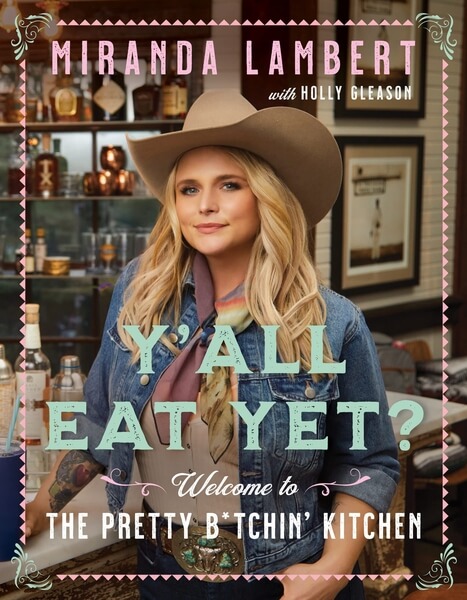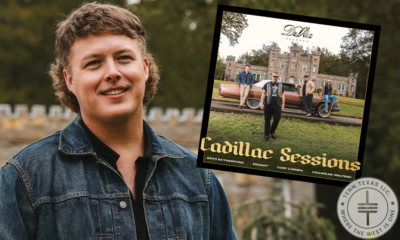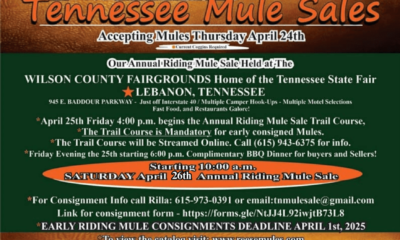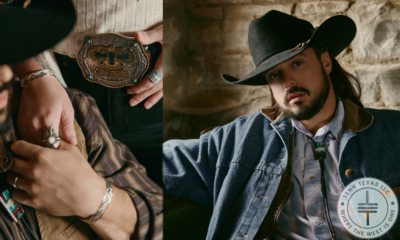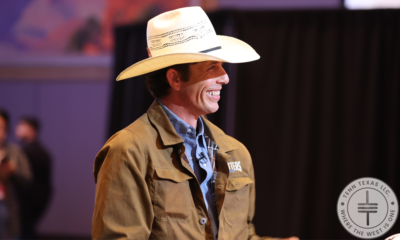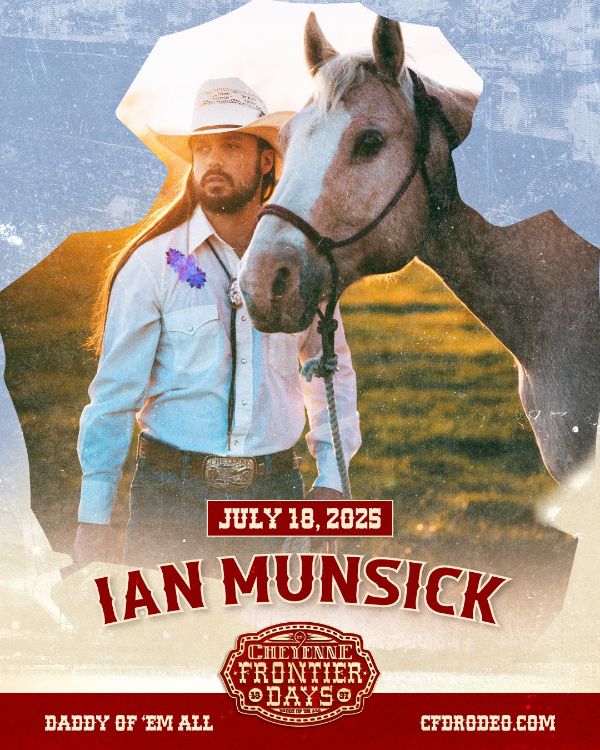Entertainment
Rock & Roll Hall Of Fame Foundation Announces Nominees For 2022 Induction
Starting today, fans can cast their votes at rockhall.com
Published
3 years agoon
By
Christina
NEW YORK (February 2, 2022) — The Rock & Roll Hall of Fame Foundation announced today the following Nominees for 2022 Induction:
- Beck
- Pat Benatar
- Kate Bush
- DEVO
- Duran Duran
- Eminem
- Eurythmics
- Judas Priest
- Fela Kuti
- MC5
- New York Dolls
- Dolly Parton
- Rage Against The Machine
- Lionel Richie
- Carly Simon
- A Tribe Called Quest
- Dionne Warwick
“This year’s ballot recognizes a diverse group of incredible artists, each who has had a profound impact on the sound of youth culture”.
john sykes – chairman of the rock and roll hall of fame foundation
“This year’s ballot recognizes a diverse group of incredible artists, each who has had a profound impact on the sound of youth culture”, said John Sykes, Chairman of the Rock and Roll Hall of Fame Foundation. “Their music not only moved generations, but also influenced the sound of countless artists that followed.”
Nominee ballots are sent to an international voting body of more than 1,000 artists, historians, and members of the music industry. Factors such as an artist’s musical influence on other artists, length and depth of career and the body of work, innovation, and superiority in style and technique are taken into consideration.
The Rock & Roll Hall of Fame offers fans the opportunity to participate in the Induction selection process with the 2022 Induction Fan Vote sponsored by Ohio. Find It Here. Today through April 29, fans can vote every day at vote.rockhall.com, or at the museum in Cleveland. The top five artists, as selected by the public, will comprise a “fans’ ballot” that will be tallied along with the other ballots to select the 2022 Inductees.
Inductees will be announced in May 2022. The Rock & Roll Hall of Fame 2022 Induction Ceremony will take place this fall. The date, venue, and on-sale information will be announced later.
The Nominees were announced on Rock Hall social channels and live on SiriusXM VOLUME channel 106’s “Feedback” morning show with hosts Nik Carter and Lori Majewski.
Select Rock Hall donors and members get exclusive Induction ticket opportunities. Donate or join by June 30 to be eligible. Visit rockhall.com/support to learn more.

BECK

Beck has created some of the most innovative and ambitious music of the past three decades. His category-defying catalog has encompassed a kaleidoscopic array of styles and genres – from folk, soul, funk, hip-hop, electronic, country, and Latin music to virtually every kind of rock – all brought together by clever songcraft, a mix of irony and showmanship, and an absurdist sense of humor. Across a dozen-plus albums, Beck’s music has continually shifted in style and mood, often synthesizing disparate musical elements into pop collages and divinely layered soundscapes.
Born into an artistic family in Los Angeles, Beck Hansen began performing in his teens. His irony-soaked single “Loser” became an unexpected worldwide hit in 1993. While Mellow Gold was his commercial breakthrough, the album that firmly established Beck’s position in the rock pantheon was Odelay, a thrilling, sample-heavy pastiche of folk, punk, and electronic noise that became a landmark of 1990s rock. Drawing upon music both old and new, Beck reimagined the ways alternative rock could look to the future by rummaging through the past.
Beck has since released numerous critically acclaimed albums, none of which sound like their immediate predecessors – from the quiet, psychedelic folk-rock of Mutations to the surrealist funk and soul of Midnite Vultures, from the sublime acoustic folk of Sea Change to the sample-based electro-funk of Guero. His majestic, folk-infused Morning Phase won three Grammy Awards, including Album of the Year. Its follow-up, Colors, won a Grammy for Best Alternative Music Album. Both Odelay and Sea Change have been ranked among Rolling Stone‘s 500 Greatest Albums of All Time.
Endlessly creative and prolific, Beck continually blurs lines between past and present, traditional and modern, and sincerity and satire. Beck is a mainstay in rock – a neo-folk-hop troubadour, a postmodern soul prankster, an artist of the highest caliber who has proven his talents, ingenuity, and longevity time and time again.
Selected discography:
“Loser,” Mellow Gold (1994) • “Devil’s Haircut,” “The New Pollution,” “Where It’s At,” Odelay (1996) • “Cold Brains,” “Tropicalia,” Mutations (1998) • “Sexx Laws,” “Debra,” Midnite Vultures (1999) • “The Golden Age,” “Lost Cause,” Sea Change (2002) • “E-Pro,” “Hell Yes,” Guero (2005) • Modern Guilt (2008) • “Morning,” “Blue Moon,” “Waking Light,” Morning Phase (2014) • “Dreams,” Colors (2017) • Hyperspace (2019)
Nominee: Beck

PAT BENATAR
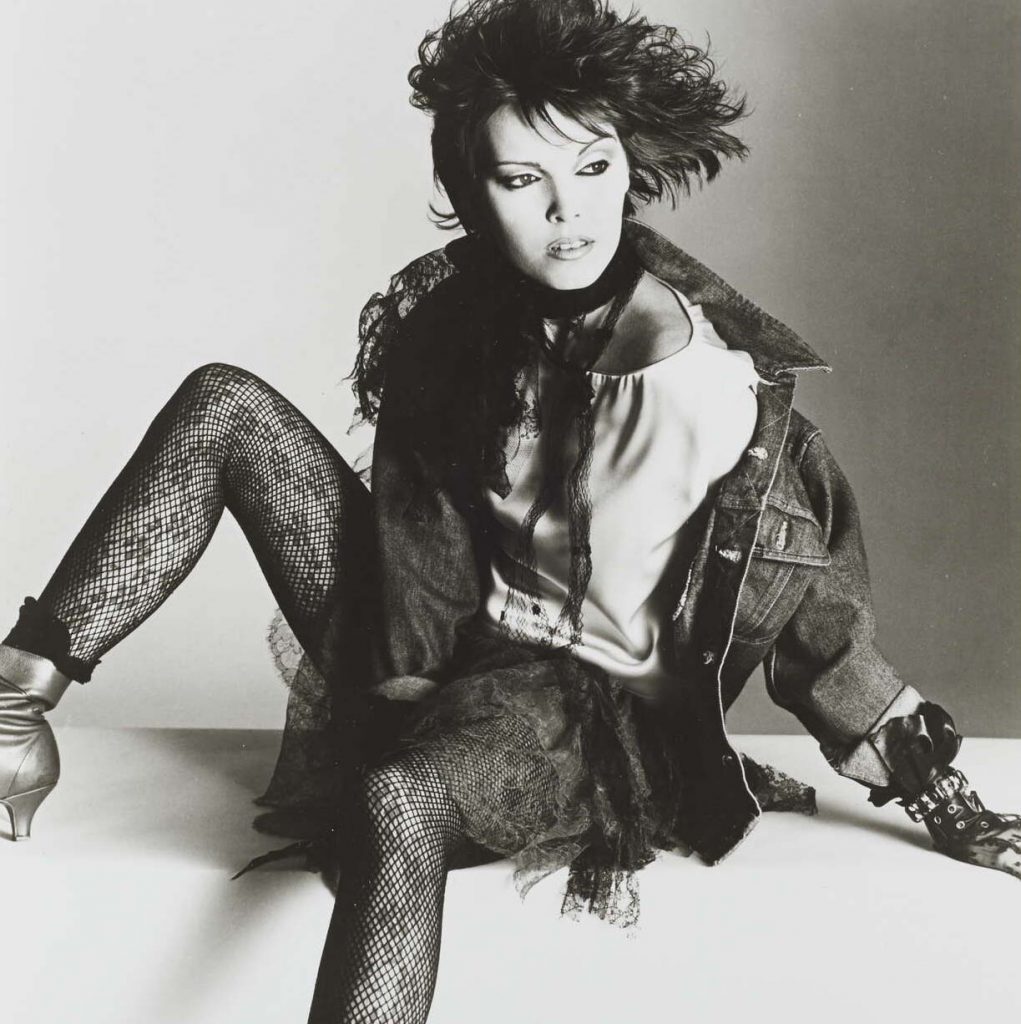
Pat Benatar and Neil Giraldo are among the most formidable power couples in rock history. Together, they created a sound that deeply impacted the sonic landscape of the 1980s.
Benatar, a classically-trained mezzo-soprano, quit her job in 1971 to pursue a singing career. She started out performing in lounges and nightclubs, using open mic and amateur nights to develop her persona and style. In 1979, she was introduced to Neil Giraldo, whose distinctive, distorted guitar playing complemented the clarity and strength of Benatar’s voice; the duo’s fire-power packed a punch that energized tracks like “Heartbreaker” and “Treat Me Right.” This hard-driving signature sound drove them to the top of the charts with hits like “Hit Me With Your Best Shot,” “We Belong,” and “Invincible.” Their achievements include two certified multi-platinum studio albums and ten gold and platinum releases. Benatar also dominated the Grammys in the 1980s, winning four consecutive awards beginning in 1980 and garnering a total of nine nominations.
When “You Better Run” aired as the second-ever video on MTV, Benatar became the first woman (and Giraldo the first guitarist) to appear on the channel. The band remained in heavy rotation on MTV, and cinematic videos like “Love Is a Battlefield” shaped how audiences envisioned rock music and bands led by women. “I was a serious, dedicated, formidably rockin’ lead singer who happened to be a girl. And that’s exactly how [Neil] saw it, too,” writes Benatar. “I wanted to make music, but I wanted to do it on my own terms.” Making music on their own terms meant that they wrote most of their own songs, insisting on imagery that felt authentic to them, with Giraldo frequently contributing his talents as a producer.
Benatar and Giraldo’s partnership is one of rock’s most long-lasting. They founded their own entertainment company, Bel Chiasso, and are still performing and creating to this day, highlighting that they truly are unstoppable.
Selected discography: “Heartbreaker,” In the Heat of the Night (1979) • “Hit Me With Your Best Shot,” “Treat Me Right,” Crimes of Passion (1980) • “Fire and Ice,” Precious Time (1981) • “Shadows of the Night,” Get Nervous (1982) • “Love Is a Battlefield,” Live From Earth (1983) • “We Belong,” Tropico (1984) • “Invincible,” Seven the Hard Way (1985) • “All Fired Up,” Wide Awake in Dreamland (1988)
Nominees: Pat Benatar, Neil Giraldo

KATE BUSH
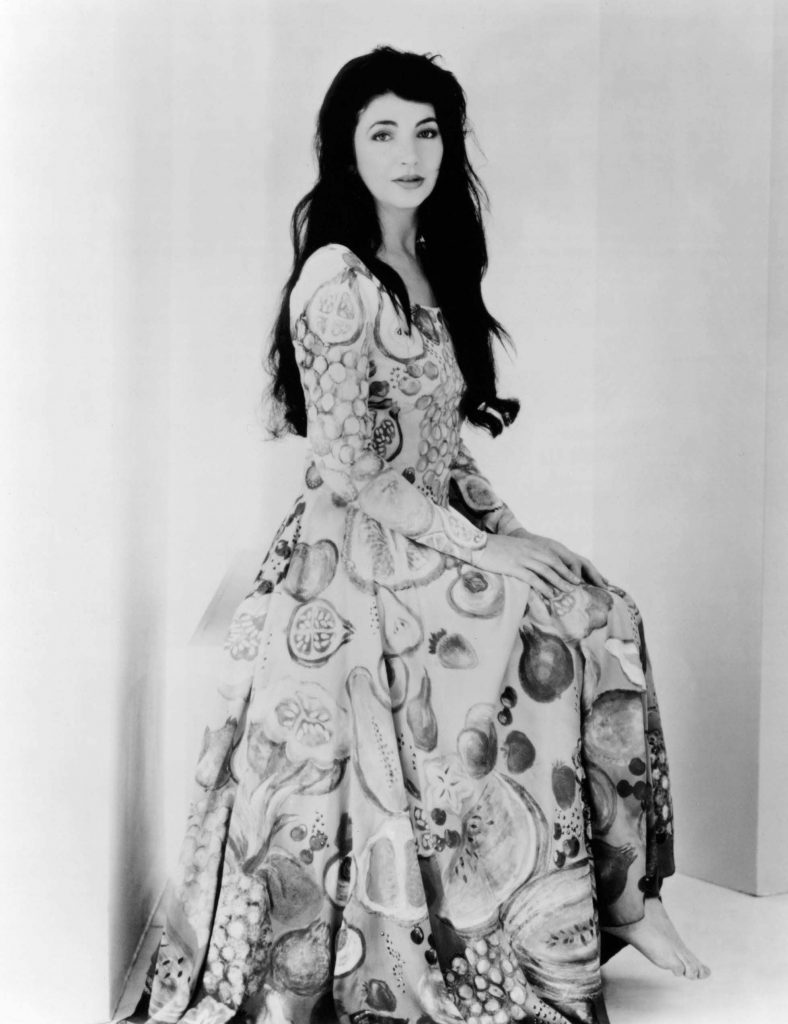
Kate Bush creates music that is at once spellbinding, ambitious, complex, and lush. A visionary, Bush steered the course of her career from its infancy, fighting her record label for her debut single in 1978 and maintaining control of her eclectic musical aesthetic by establishing a home recording studio and her own publishing and management companies. Bush burst open doors for female artists to experiment more radically with their music, image, and theatricality, inspiring Björk, Tori Amos, Solange, St. Vincent, and countless others.
Bush’s thematic allusions to literature, myth, cinema, and history – combined with storytelling and an early use of sampling – won her hip-hop admirers including Tupac and Outkast’s Big Boi. The esoteric Emily Brönte-inspired debut single “Wuthering Heights” from her inaugural album The Kick Inside made Bush an overnight sensation as the first female artist to reach number one on the UK charts with a self-written song. The album was soon followed by Lionheart and Bush’s first and only concert tour – “The Tour of Life” – described by The Guardian as an “extraordinary, hydra-headed beast” that combined music, dance, theater, poetry, mime, burlesque, and magic. The show’s 17 costume changes and demanding choreography led Bush to become one of the first musicians to use a wireless headset microphone. This novel approach to stage performance, along with her stylized music videos and short films, was acknowledged by Elton John as “a benchmark for people’s shows in the future.”
Bush’s seventh studio album The Red Shoes (1993) marked the beginning of a 12-year hiatus before her return with the critically acclaimed double album Aerial (2005). In 2014, Bush returned to the live stage – 35 years after “The Tour of Life” – for a concert residency at London’s Hammersmith Apollo. Tickets sold out in 15 minutes, and the acclaim that followed drove eight of her albums to chart simultaneously – another first for women in rock. Singer, writer, multi-instrumentalist, and producer, Kate Bush is not only a rock superstar, but a legend.
Selected discography:
“Wuthering Heights,” The Kick Inside (1978) • “Wow,” Lionheart (1978) • “Babooshka,” Never for Ever (1980) • The Dreaming (1982) • “Running Up That Hill (A Deal With God),” “Cloudbusting,” “Hounds of Love,” Hounds of Love (1985) • “This Woman’s Work,” The Sensual World (1989) • “King of the Mountain,” Aerial (2005) • “Among Angels,” 50 Words for Snow (2011)
Nominee: Kate Bush

DEVO
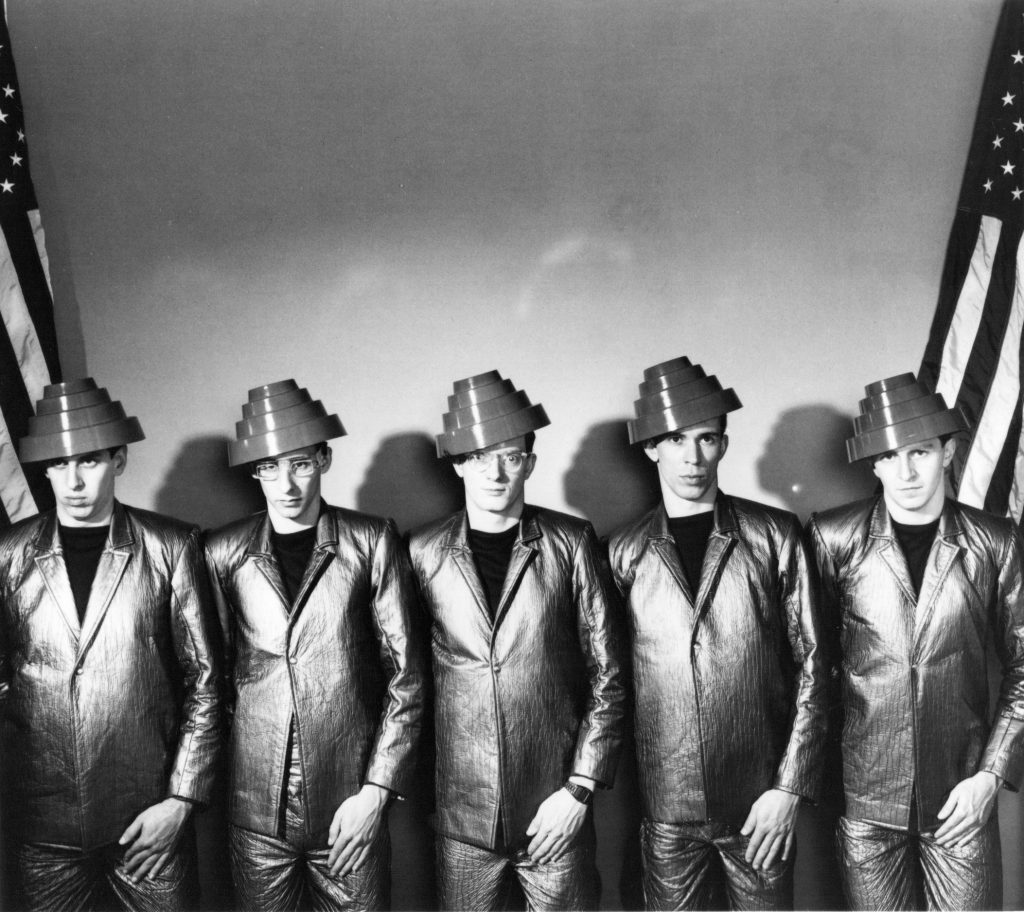
DEVO = De-EVOlution. Are we regressing as a culture instead of moving forward? In 1970, the students who would go on to form Devo asked themselves this very question when they witnessed the infamous May 4th Kent State shootings. At that moment Devo were born as equal parts art project, performance art, rock & roll satire, and punk band. They produced a sound that was fresh to the world, a wild amalgam of sharp-edged punk rock guitar angst, Kraftwerk-inspired synthesized modernity, jagged motoric rhythms, and detached spoken word vocalizations. The primary lineup featured two sets of brothers, Bob (guitar) and Gerald (bass) Casale, and Bob (guitar) and Mark (keyboards) Mothersbaugh, along with Alan Myers (drums).
Their early performances around Akron, Ohio allowed them to develop their songs, performance routines (hazmat suits), and stage characters (Booji Boy). In 1978 they recorded their debut LP with Brian Eno and David Bowie both producing. Devo’s cover of the Rolling Stones’ “(I Can’t Get No) Satisfaction” showed them embracing rock history while simultaneously tearing it down – taking one of the key rock anthems of the 1960s and turning it into a nervous rhythmic groove for the coming decade. Right on time, Devo released Freedom of Choice in 1980 and hit the pop charts with “Whip It!” The band’s performance art was the perfect fit for the era of music video. Clad in black turtleneck t-shirts with bright red energy domes on their heads, they took the world by storm. But their constant use of humor and satire hid the biting criticism of modern society on tracks like “Freedom of Choice” and “Gates of Steel.” Devo set up the punch lines and expected their audiences to fill in the blanks. This technique often left people asking what they were all about. But for those who got the message (like Nine Inch Nails, Daft Punk, and Gorillaz), Devo became a beacon guiding an entire generation of new wave, industrial, and electronic artists into the future.
Selected discography:
“Mechanical Man” (1978) • “(I Can’t Get No) Satisfaction,” “Jocko Homo,” Q: Are We Not Men? A: We Are Devo! (1978) • Duty Now for the Future (1979) • “Whip It!,” “Freedom of Choice,” Freedom of Choice (1980) • “Through Being Cool,” “Beautiful World,” New Traditionalists (1981) • Oh No! It’s Devo (1982) • “Fresh,” “Don’t Shoot (I’m a Man),” Something for Everybody (2010) • “Monsterman,” Something Else for Everybody (2013)
Nominees: Bob Casale, Gerald Casale, Bob Mothersbaugh, Mark Mothersbaugh, Alan Myers

DURAN DURAN
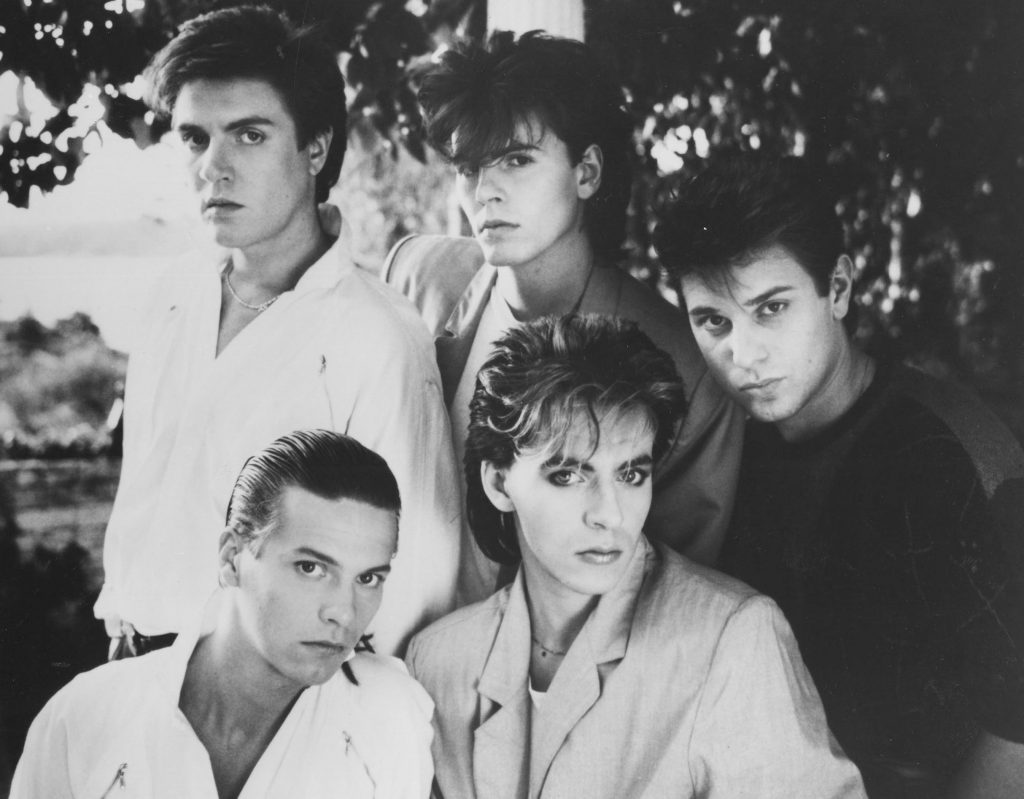
Duran Duran are a band of delicious dichotomies: infectious pop melodies concealing complicated musical arrangements; pioneering synthesizers combined with distorted glam rock guitars. They were new wave outsiders who became music video stars – Tiger Beat fashion pinups who rocked arenas. Formed in 1978 by John Taylor (bass) and Nick Rhodes (keyboards) in Birmingham, England, they were named after the villain of the 1968 cult sci-fi film Barbarella. Inspired by the sonic and visual vibrancy of David Bowie, Roxy Music, and Japan, they mixed the dance rhythms of Chic with a dash of the Sex Pistols’ danger and attitude. With the addition of drummer Roger Taylor, guitarist Andy Taylor, and vocalist Simon Le Bon, the group was complete, forming what the British press called the “Fab Five.” Their first album, Duran Duran, knocked open the doors to the 1980s with two hit singles and a sexually explicit music video for “Girls on Film” that was banned in the UK and edited for the newly launched MTV. Throughout the decade, Duran Duran produced a stream of smash albums including Rio, Seven and the Ragged Tiger, and Notorious, and their cinematic music videos made them superstars around the world. They filled arenas with their dynamic live performances and became darlings of dance clubs – one of the first bands to create their own 12” mixes (dubbed “Night Versions”).
By the early 1990s, the world of rock was shifting from synthesized sounds to the distorted guitars of grunge, and many artists were left behind, but not Duran Duran. In 1993, with guitarist Warren Cuccurullo, the band created a successful new album, reinventing themselves and charting two Billboard Top Ten singles. With over 100 million records sold and 18 hit singles in the U.S., they continue to innovate their sound, collaborating with new artists including Justin Timberlake, Tove Lo, Ana Matronic, and Janelle Monáe, and working with producers such as Timbaland and Mark Ronson.
Selected discography:
“Girls on Film,” Duran Duran (1981) • “Rio,” “Hungry Like the Wolf,” Rio (1982) • “The Reflex,” “New Moon on Monday,” Seven and the Ragged Tiger (1983) • “A View to a Kill,” (1985) • “Notorious,” Notorious (1986) • “Ordinary World,” Duran Duran (AKA The Wedding Album) (1993) • “(Reach Up for the) Sunrise,” Astronaut (2004) • “Give It All Up,” Future Past (2021)
Nominees: Warren Cuccurullo, Simon Le Bon, Nick Rhodes, Andy Taylor, John Taylor, Roger Taylor

EMINEM

Eminem: Unbridled controversy. Unparalleled talent. Unmatched superstardom. As the single best-selling artist of the 2000s, a 15-time Grammy winner, and the first artist to have ten consecutive Number One debut albums on the Billboard 200, Eminem’s accolades speak for themselves. His world-renowned status solidified hip-hop as the most commercially successful music on the planet.
A rags-to-riches story, Eminem (b. Marshall Mathers) rapped his way out of a childhood marked by abuse and instability via MC battles in Detroit’s Hip-Hop Shop, to Los Angeles’ 1997 Rap Olympics, and straight onto Dr. Dre’s Aftermath Entertainment label. There, Eminem’s major label debut, The Slim Shady LP, catapulted him into the mainstream. On that record and his follow-up magnum opus, The Marshall Mathers LP, he crafted an inimitable rap technique ripe with inventive wordplay and infectious hooks. His nasal-yet-guttural tone spits out rhyme-saturated lyrics at blistering speeds. Eminem’s alter egos enable his provocative storytelling to alternate between the often-comedic depravity of Slim Shady (“My Name Is,” “Kim”) and the introspective vulnerability of Marshall Mathers (“Marshall Mathers”). In 2002, Eminem’s success continued with the release of The Eminem Show and the quasi-autobiographical film 8 Mile, which spawned his acting career and the hype anthem, “Lose Yourself.”
Eminem has become more explicitly political as his career has progressed, delving deeper into his personal struggles and pushing his rap style toward “Rap God” virtuosic perfection. With one hand, he holds up a mirror to American society to expose its darkest corners: domestic violence (“Stan,” “Love the Way You Lie”), white privilege (“White America”), anxieties about homosexuality (Ken Kaniff skits), failed parenthood (“My Mom”), and corrupt politicians (“Mosh”) – no one is left unscathed. With his other hand, he throws up a middle finger. Art that stands the test of time often makes people uncomfortable and questions the status quo, and no one shakes people to their core quite like Eminem.
Selected discography:
“My Name Is,” “Guilty Conscience,” The Slim Shady LP (1999) • “Stan,” “The Real Slim Shady,” “Marshall Mathers,” The Marshall Mathers LP (2000) • “White America,” The Eminem Show (2002) • “Lose Yourself,” 8 Mile soundtrack (2002) • “Mosh,” Encore (2004) • “My Mom,” Relapse (2009) • “Love the Way You Lie,” Recovery (2010) • “Godzilla,” Music to Be Murdered By (2020)
Nominee: Eminem

EURYTHMICS
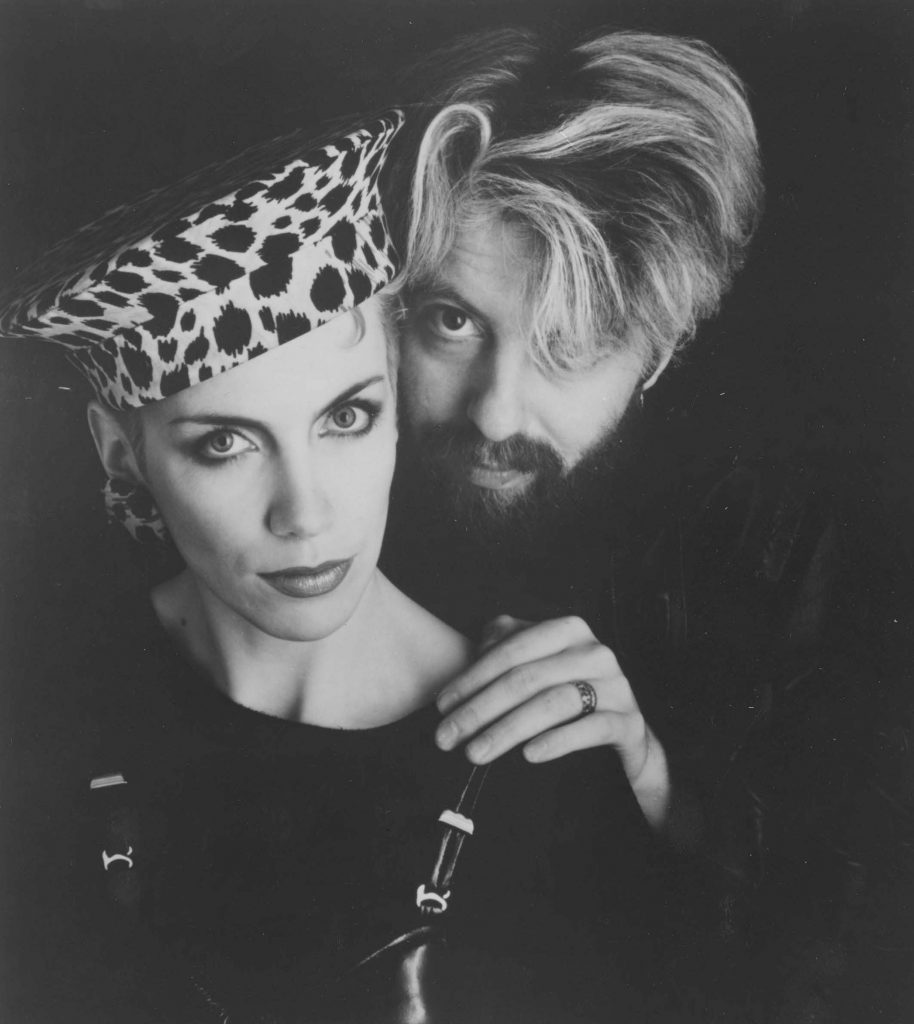
Much like the moment in The Wizard of Oz when the film turns from black-and-white to Technicolor, the opening strains of Eurythmics’ “Sweet Dreams (Are Made of This)” irrevocably changed perceptions of 1980s pop-rock. Employing the mechanistic funk of Krautrock, the grit of gospel, and the strangeness of psychedelia, Eurythmics’ genre- and gender-fluid pop vision was both futuristic and beholden to past eras, while remaining eminently accessible. Eurythmics’ lyrics and imagery presaged the third wave of feminism and a more mainstream deconstruction of sexuality and gender, with their videos and live performances featuring androgynous frontwoman Annie Lennox, at once formidable and alluring. The stories the band told, through song and theatrics, spoke to what it meant to live and love in the late 20th century.
In 1983, the operatically powerful Lennox and experimental producer/multi-instrumentalist Dave Stewart mostly eschewed guitar riffs in favor of analog synthesizer lines, sequenced to produce bedrock bass lines of melodic depth, resulting in their cynical breakout hit “Sweet Dreams.” Follow-up album Touch included three major hit singles and is ranked among Rolling Stone’s 500 Greatest Albums of All Time. Strikingly, when Eurythmics expanded their sound to include big-band strings and horns, they found continued acclaim. Stewart turned up his rock guitar on “Would I Lie to You?” and added lush orchestral arrangements to “Here Comes the Rain Again,” but no song better illustrates the duo’s ability to effortlessly pivot between rock and R&B than the iconic feminist anthem “Sisters Are Doin’ It for Themselves,” which combined Lennox’s commanding vocal with Aretha Franklin and members of Tom Petty and the Heartbreakers.
In 1990, Eurythmics went on hiatus to pursue expansive and award-winning solo careers, reforming in 1999 for the politically charged album Peace. Their 2005 empowering single “I’ve Got a Life” hit Number One on Billboard’s dance chart. After four decades, Eurythmics’ longevity and influence continue through performances in support of their charitable works and political activism.
Selected discography:
“Sweet Dreams (Are Made of This),” “Love Is a Stranger,” Sweet Dreams (Are Made of This) (1983) • “Who’s That Girl?,” “Here Comes the Rain Again,” “Right by Your Side,” Touch (1983) • “Sisters Are Doin’ It for Themselves,” “There Must Be an Angel (Playing with My Heart),” “Would I Lie to You?,” Be Yourself Tonight (1985) • “Missionary Man,” “When Tomorrow Comes,” Revenge (1986) • “I Need a Man,” Savage (1987) • Peace (1990) • “I’ve Got a Life” (2005)
Nominees: Annie Lennox, Dave Stewart

JUDAS PRIEST
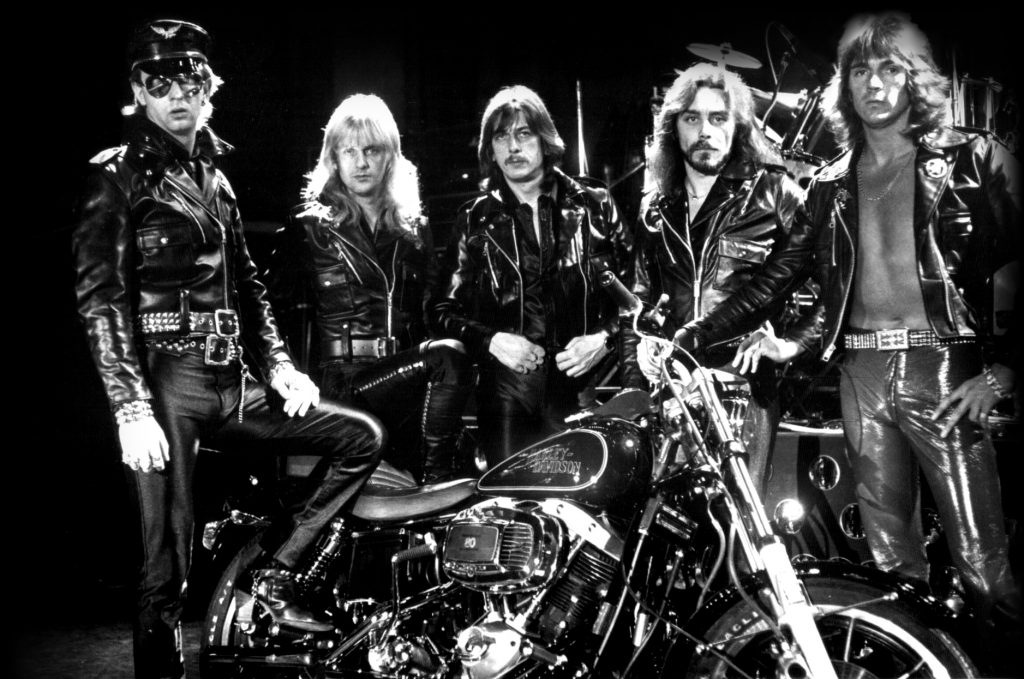
Judas Priest took the molten steel forged by Black Sabbath and Deep Purple and used it to become metal gods, creating the mold for the future of all heavy metal. If you’ve seen Judas Priest live you know the powerful force of their dual guitar attack, driving riffs, soaring operatic vocals – the unapologetic sound of heavy metal played at its absolute best. The roots of the band go back as far as 1969, but it was when vocalist Rob Halford and second lead guitarist Glenn Tipton joined guitarist K. K. Downing and bassist Ian Hill in the 1970s that their unique sound began to take real shape. In 1980, they released the classic British Steel, the album that would propel the band beyond the world of metal and hard rock – starting a run of platinum selling albums – and onto mainstream radio with “Living After Midnight” and “Breaking the Law.”
Judas Priest are a band whose message of being yourself and loving the music you love – regardless of trends – resonates all over the world. Rob Halford is a pure singer with incredible range who is considered the best of the best by all fans of metal. His studded leather, biker-inspired visual look was adopted by many metal bands who followed. Openly and proudly gay, Halford has led an entire genre of bands and fans toward a more enlightened understanding and inclusiveness. Having gone through a number of lineup changes over the years, the band is still performing today with plans for a new album to follow 2018’s Firepower. The list of bands who have taken inspiration from Judas Priest is long and wide, including everyone from Metallica and Slipknot to Pearl Jam and Rage Against the Machine. After 50 years, Judas Priest are still at the top of their game with intense live performances and a firm commitment to a genre they helped define.
Selected discography:
“Victim of Changes,” Sad Wings of Destiny (1976) • “Diamonds & Rust” (1977) • “Exciter,” Stained Class (1978) • “Delivering the Goods,” Killing Machine (1978) • “Breaking the Law,” “Living After Midnight,” British Steel (1980) • “Heading Out to the Highway” (1981) • “You’ve Got Another Thing Comin’,” Screaming for Vengeance (1982) • “The Sentinel,” Defenders of the Faith (1984) • “Painkiller,” Painkiller (1990)
Nominees: Les Binks, K. K. Downing, Rob Halford, Ian Hill, Dave Holland, Glenn Tipton, Scott Travis

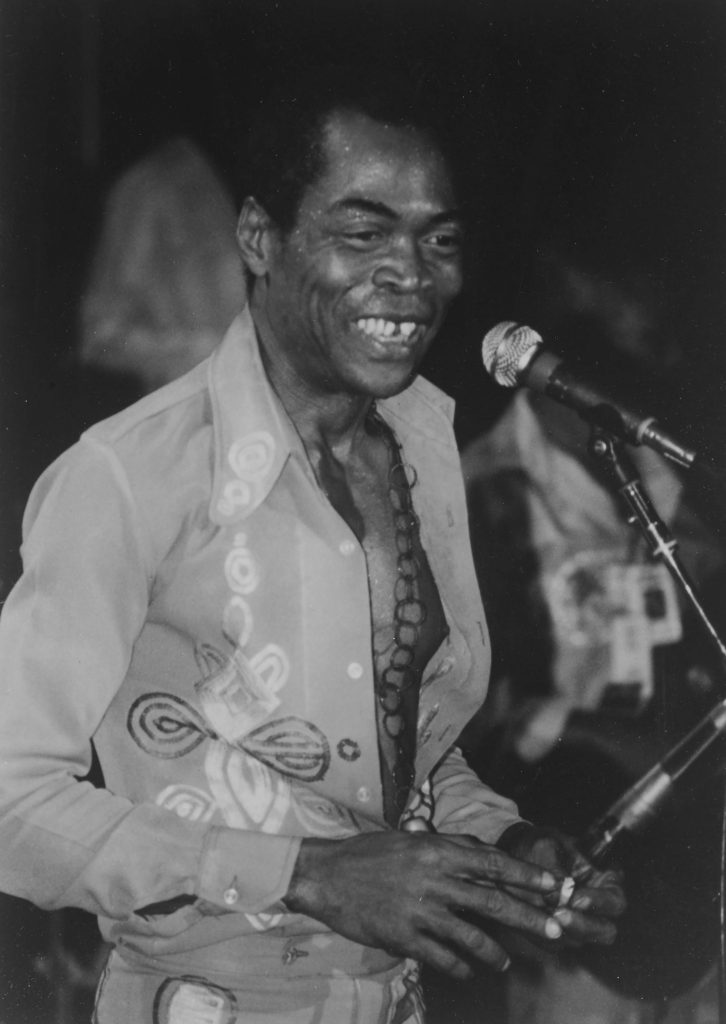
FELA KUTI
Multi-instrumentalist and Afrobeat pioneer Fela Kuti fused music and politics to become a singular global revolutionary voice. Fela (Olufela Olusegun Oludoton Ransome Kuti) was born in 1938 into a politically active and musical Nigerian family: his father founded the Nigeria Union of Teachers and had a passion for piano, and his mother was known for her anti-colonial, Nigerian home rule movement advocacy. In 1961, while studying music in London, Fela formed his first band, Koola Lobitos, and quickly became a fixture on the London club scene. He later toured the United States, where he was influenced by soul and funk legends James Brown and Sly Stone. Reflecting the musical and cultural flavors of Africa and Black America’s Civil Rights Movement, Fela fused elements of traditional West African highlife, jazz, and soul music and dubbed this rhythmic hybrid “Afrobeat.”
Throughout his career, Fela showcased his love for jazz and soul on hits like “Water Get No Enemy,” “Expensive Shit,” and “Beasts of No Nation.” It was with the album Alagbon Close that Fela addressed the ills of the Nigerian government openly in his music. His revolutionary Pan African ideology was even depicted in his album covers, and he focused his music on provoking political change. Although vilified by the press and jailed for his anti-corruption stance, Fela was celebrated as a hero in Africa, and that soon stretched to a global reach.
“As an artist, the whole idea about your environment must be represented in music,” Fela said. “So, I think, as far as Africa is concerned … music has to be for revolution.” Even 25 years after his death in 1997, Fela Kuti’s innovative music, revolutionary message, and generational impact continue to represent the indomitable and evolving spirit of rock & roll.
Selected discography:
“Why Black Man Dey Suffer,” Why Black Man Dey Suffer (1971) • “Lady,” “Shakara (Oloje),” Shakara (1972) • “Alagbon Close,” Alagbon Close (1974) • “Expensive Shit,” “Water No Get Enemy,” Expensive Shit (1975) • “Upside Down,” Upside Down (1976) • “Zombie,” Zombie (1977) • “Don’t Worry About My Mouth O (African Message),” Stalemate (1977) • “Fear Not for Man,” Fear Not for Man (1977) • “I.T.T. (International Thief Thief),” International Thief Thief (1980) • “Beasts of No Nation,” Beasts of No Nation (1989)
Nominee: Fela Kuti

MC5
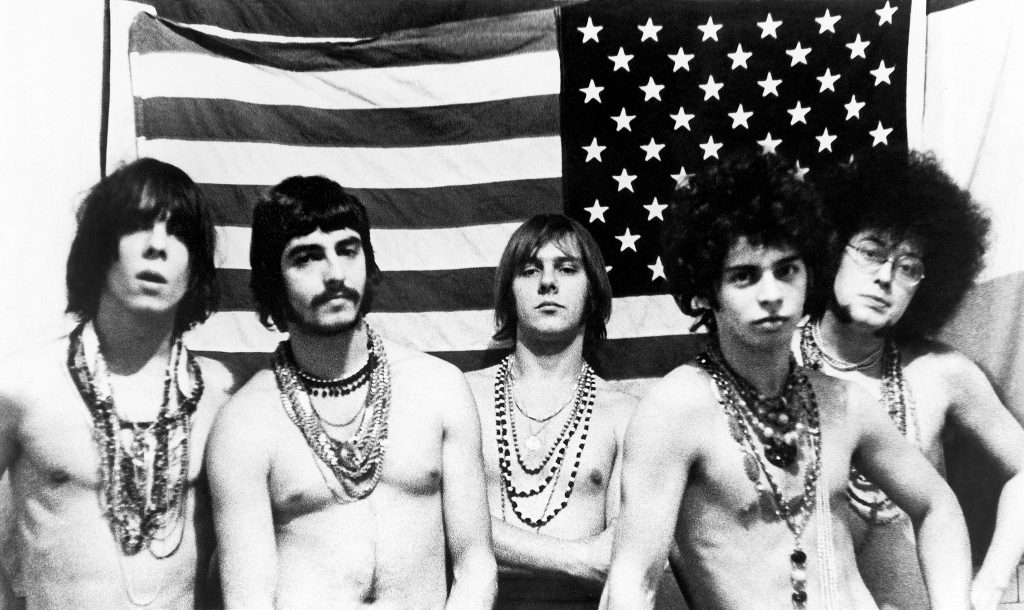
“Brothers and sisters, the time has come for each and every one of you to decide whether you are gonna be the problem or whether you are gonna be the solution.” For the Motor City 5, there was never any doubt that the band’s unapologetic driving rock anthems would be anything but the solution – the fast-rocking truths, raw and revealing about a culture in turmoil.
Draped in red, white and blue, the MC5 were a high-watt onslaught of musicians: guitarists Wayne Kramer and Fred “Sonic” Smith, bassist Michael Davis, drummer Dennis Thompson, and brain-shattering lead singer Rob Tyner. The Motor City 5 kicked out the jams and politicized every bystander in sight. Their powerful sound was a unique combination of R&B, psychedelia and garage rock with dominant political messages. Invited by Abbie Hoffman to play to the masses of young protestors outside the 1968 Democratic National Convention in Chicago, MC5 were the only band brazen enough to play onstage. They became the soundtrack to a cultural tipping point, played over scenes of tear gas and police brutality.
With proud anti-establishment credentials, the MC5 prefigured much of American punk rock and even influenced heavy metal. After releasing Kick Out the Jams, the band broke new ground with their second album, Back in the USA, produced by then rock critic Jon Landau. The record combined Chuck Berry riffs with lyrics that remain prophetic to this day. Just listen to “High School” and you’ll hear the pop-punk sound that was later perfected by the Ramones. Each album’s relentless qualities drive listeners to the brink of sensory overload while remaining rooted in melody and groove.
Now, over fifty years since the release of the band’s first album, founder Wayne Kramer is back on the road with a super group of musicians playing thought-provoking music during another period of political unrest. The MC50 features members of Faith No More, Fugazi, Soundgarden, and Zen Guerilla, encapsulating the continued broad influence and spirit of the original Motor City 5.
Selected discography:
“I Can Only Give You Everything,” “I Just Don’t Know” (1966) • “Looking at You,” “Borderline,” (1968) • “Kick Out the Jams,” “Ramblin’ Rose,” “Rocket Reducer No. 62 (Rama Lama Fa Fa Fa),” Kick Out the Jams (1969) • “Tonight,” “Shakin’ Street,” Back in the USA (1970) • “Sister Anne,” High Time (1971)
Nominees: Michael Davis, Wayne Kramer, Fred Smith, Dennis Thompson, Rob Tyner

NEW YORK DOLLS
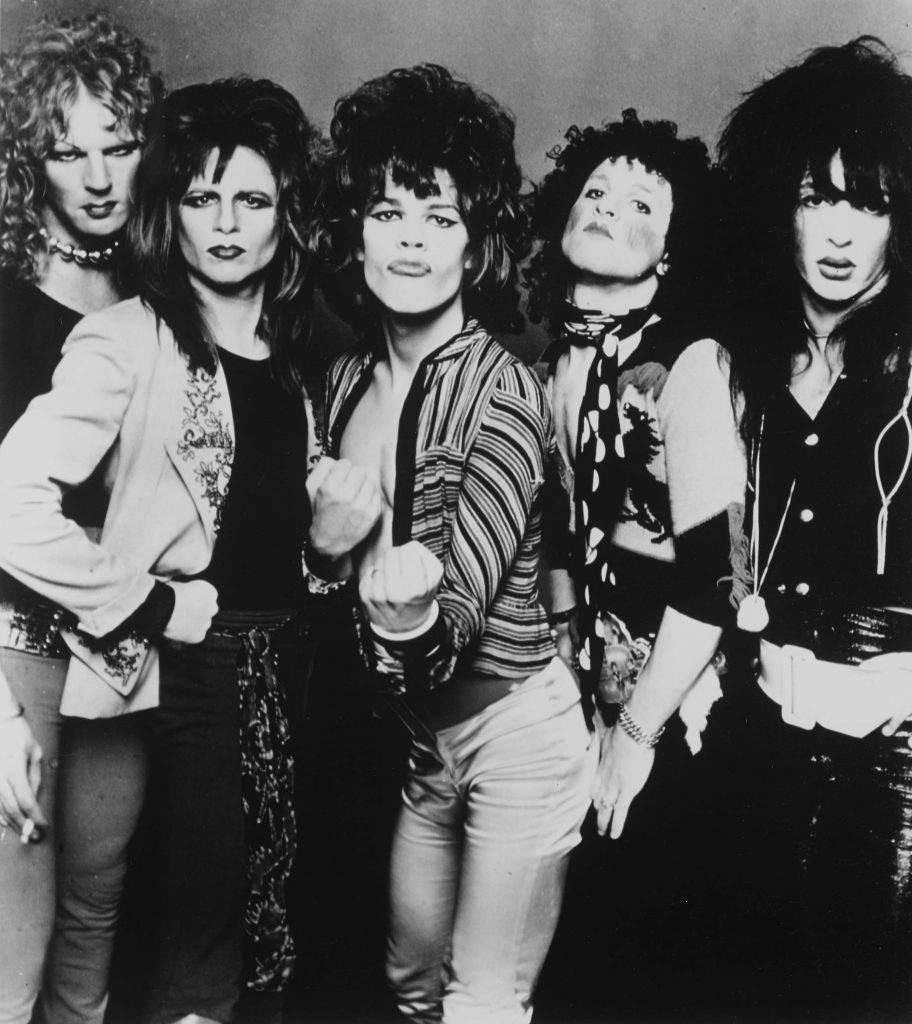
The New York Dolls were punk rock before most music fans had ever even heard of punk, and they inspired virtually every punk band who followed in their wake. Formed in 1971, the Dolls combined the swagger of the Rolling Stones, the raw sounds of the Stooges, the glam of David Bowie and T. Rex, and the pop influence of girl groups into their own brand of take-no-prisoners rock & roll that was unlike anything anyone had seen or heard before.
While many labels were scared away by the band’s androgynous wardrobes and unabashed vulgarity, Mercury Records signed the Dolls and released their raucous debut album New York Dolls in 1973. Recorded by the band’s classic lineup – vocalist David Johansen, guitarists Johnny Thunders and Sylvain Sylvain, bassist Arthur Kane, and drummer Jerry Nolan – and produced by Todd Rundgren, New York Dolls is widely regarded as one of the finest debut records in rock and among the most influential of all time. Songs like “Personality Crisis,” “Looking for a Kiss,” and “Trash” are gritty proto-punk masterpieces, with Johansen’s lyrics addressing dark subjects like adolescent heartbreak, teen alienation, and insanity, delivered with a campy girl group attitude. Featuring Thunders’ untamed lead guitar growl interlocked with Sylvain’s complementary rhythm playing, along with the messy but dynamic attack of Kane and Nolan, these groundbreaking tracks directly inspired the punk rock movement of the 1970s. The band’s 1974 follow-up Too Much Too Soon, produced by the legendary George “Shadow” Morton, was packed with even more brilliant glitter rock anthems and further cemented the Dolls’ place in rock history.
While the New York Dolls never achieved major commercial success, both of their early studio albums received glowing reviews, and music critic Robert Christgau called the group “the best hard-rock band since the Rolling Stones.” With their seminal recordings and shambolic live performances, the Dolls created some the most enduring and influential music in rock history and had an inordinate impact on generations of musicians, from the Sex Pistols to the Ramones, from KISS to Guns N’ Roses, from the Smiths to the Replacements.
Selected discography:
“Personality Crisis,” “Trash,” “Jet Boy,” New York Dolls (1973) • “Stranded in the Jungle,” Too Much Too Soon (1974) • The Return of the New York Dolls: Live from Royal Festival Hall (2004) • One Day It Will Please Us to Remember Even This (2006) • Live at the Fillmore East (2008) • Cause I Sez So (2009) • Dancing Backward in High Heels (2011)
Nominees: David Johansen, Arthur Kane, Billy Murcia, Jerry Nolan, Sylvain Sylvain, Johnny Thunders

DOLLY PARTON
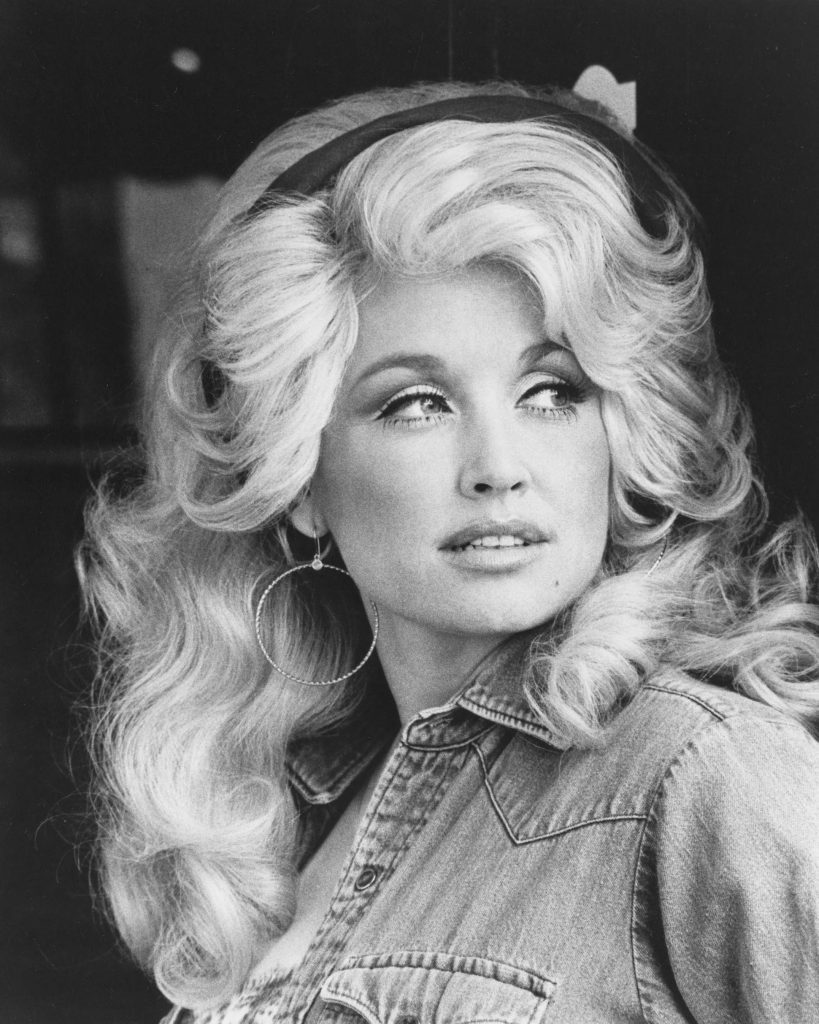
With her prodigious songwriting talent, vocal and instrumental prowess, charisma, and trademark style, Dolly Parton has achieved immense global success as a musician and blazed a trail for generations of artists to come. In a career spanning six decades, she has recorded more than 50 studio albums and, by her own estimation, written nearly 3,000 songs.
Parton’s life started in a one-room cabin in Tennessee – humble beginnings that would inspire songs like “Coat of Many Colors.” Music provided an escape and filled Parton’s cup of ambition. At age 11, she co-wrote and released her first single, “Puppy Love” (1959). After high school, Parton moved to Nashville, where her compositions were recorded by artists including Hank Williams Jr. and Kitty Wells. Showcasing her songwriting acumen and her airy, yet gritty voice, Parton’s 1967 debut album, Hello, I’m Dolly, was a hit, and as a regular on The Porter Wagoner Show, she won over the audience with her talent and charm. After a string of successful duets with Wagoner and solo Number One hits like the rollicking “Joshua” and the haunting “Jolene,” Parton parted ways with Wagoner to take control of her career. Their split inspired Parton’s chart-topping “I Will Always Love You”: In addition to Whitney Houston’s smash cover of that song, Parton’s “Jolene” has been recorded by such diverse artists as the White Stripes.
Parton’s unapologetic femininity belied her shrewd business acumen, an asset in the male-dominated music industry. Refusing to be underestimated, she set her sights on the pop charts, and the strategy paid off. Her pop hits include “Here You Come Again,” “9 to 5” – the title track for the film in which she co-starred – and her Number One duet with Kenny Rogers, “Islands in the Stream” (1983). Other collaborations include a series of recordings with Linda Ronstadt and Emmylou Harris, under the name Trio.
A living legend and a paragon of female empowerment, Parton is beloved not only for her prolific body of work, quintessential style, and philanthropic efforts, but for the humor, wit, and self-deprecating grace that shine through everything she does. Her crossover success broadened the audience for country music and expanded the horizons for countless artists who followed.
Selected discography:
“Joshua,” Joshua (1971) • Coat of Many Colors (1971) • “Jolene,” “I Will Always Love You,” Jolene (1974) • “Here You Come Again,” “Two Doors Down,” Here You Come Again (1977) • “9 to 5,” 9 to 5 and Other Odd Jobs (1980) • White Limozeen (1989) • The Grass Is Blue (1999) • Little Sparrow (2001) • “Travelin’ Thru” (2006) • Blue Smoke (2014)
Nominee: Dolly Parton

RAGE AGAINST THE MACHINE
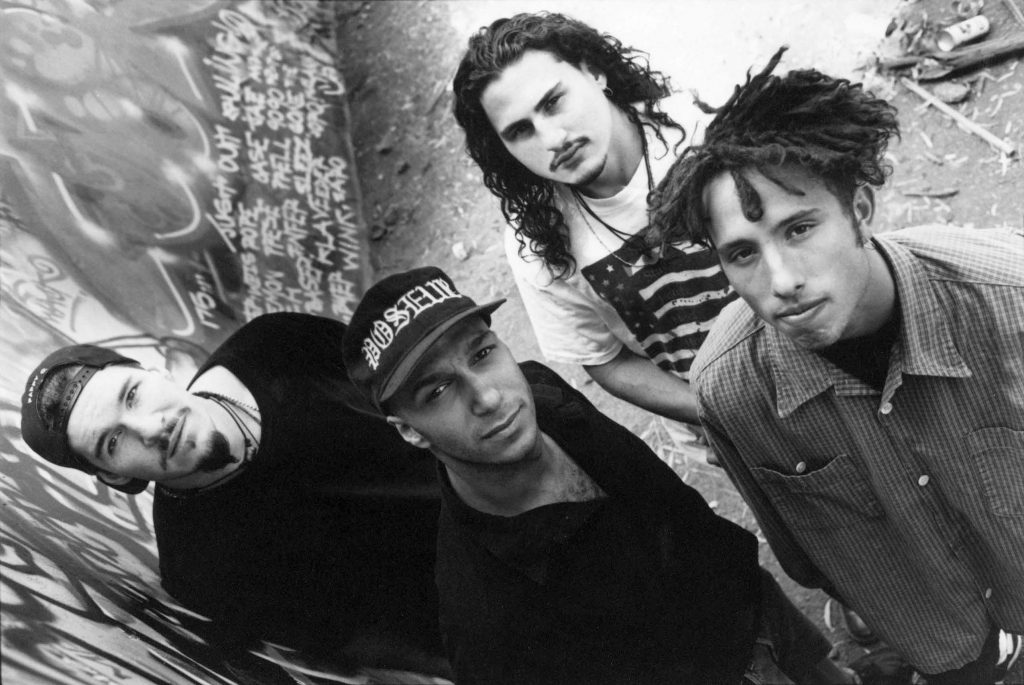
Every aspect of Rage Against the Machine throttled the status quo. Formed in 1991, the Los Angeles quartet took aim at oppressive systems of power – cultural, political, economic, and otherwise – and did everything they could to ignite a revolution. Musically, Rage Against the Machine’s subversion mixed hip-hop, punk, metal, funk, and rock. The band’s self-titled 1992 debut and 1996’s Evil Empire ushered rap-rock into the mainstream and established Rage Against the Machine as a powerful force that harnessed strength from defying sonic boundaries. Zack de la Rocha’s stinging, hip-hop-inspired vocals drew on his days fronting a hardcore band. The rhythm section of bassist Tim Commerford and drummer Brad Wilk heightened the urgency of de la Rocha’s delivery with deep, heavy grooves grounded by a pummeling backbeat – no rhythm section could maximize volume while staying in the pocket more skillfully. Guitarist Tom Morello took the rap-rock hybridization further than contemporary groups. He used pedals, toggle switches, and alternative tunings to incorporate effects normally created by hip-hop turntables, samplers, and synthesizers into the language of heavy metal through Rage’s driving riffs and iconic solos.
Rage Against the Machine were part of a musical tradition indebted to the MC5, the Clash, and Public Enemy. While plenty of 1990s rock bands supported social justice issues, Rage Against the Machine’s rebellious politics stood head and shoulders above. Onstage and off, the band members gave a voice to the powerless, calling out local and global inequalities and railing against censorship, corporate cronyism, and government overreach. Their lyrics were smart and pointed – “Freedom” highlighted the plight of Leonard Peltier, an imprisoned Native American leader, while “People of the Sun” showed solidarity with tyrannized Mexican citizens. Even today, their lyrics remain relevant. “Killing in the Name,” a stark indictment of racism and police brutality, still resonates deeply in cities across America. Rage Against the Machine forged brazen protest music for the modern world.
Selected discography:
“Killing in the Name,” “Bullet in the Head,” “Bombtrack,” Rage Against the Machine (1992) • “Bulls on Parade,” “People of the Sun,” Evil Empire (1996) • “Guerrilla Radio,” “Sleep Now in the Fire,” “Testify,” “Calm Like a Bomb,” The Battle of Los Angeles (1999) • “The Ghost of Tom Joad,” “Renegades of Funk,” Renegades (2000)
Nominees: Tim Commerford, Zack de la Rocha, Tom Morello, Brad Wilk

LIONEL RICHIE
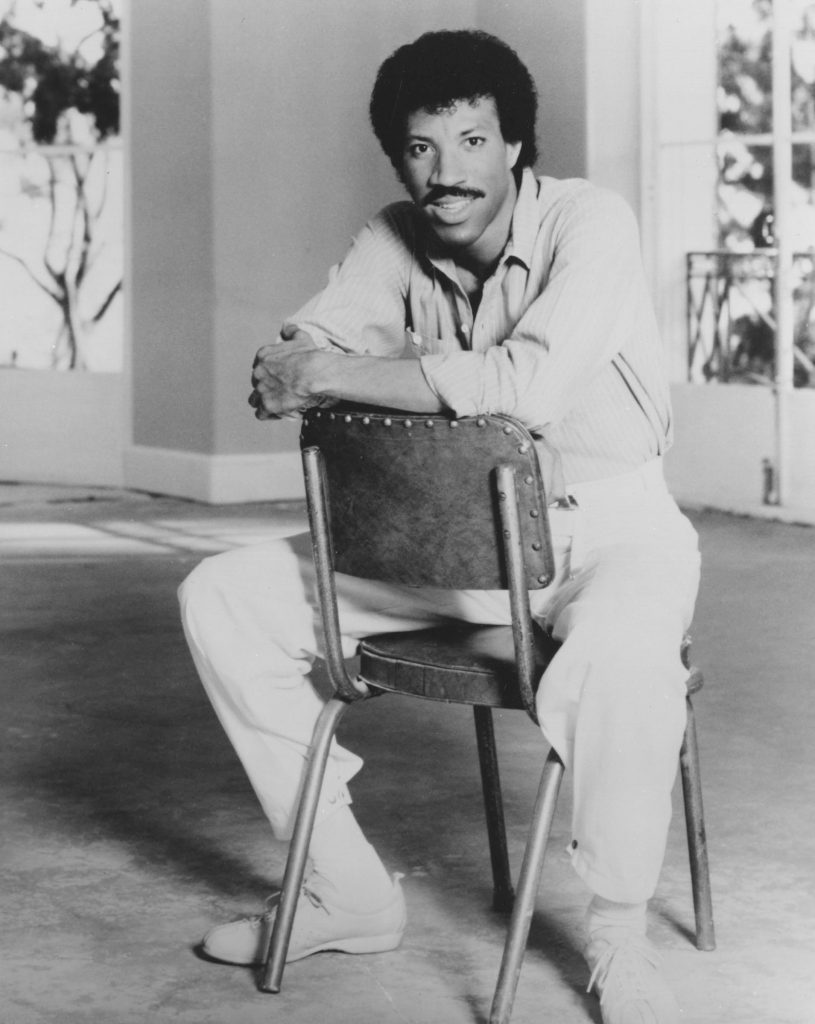
Lionel Richie spent a decade as rock & roll’s King Midas – everything he touched turned to gold. With his finger firmly on the pulse of popular music, he crafted enduring love songs and joyous anthems that resonated deeply with listeners. Richie’s effortlessly smooth voice dominated the late 1970s and 1980s, his popularity rivaled only by Michael Jackson, Madonna, and Whitney Houston. His record six Grammy nominations for Song of the Year is an achievement only matched by Paul McCartney.
Richie’s path to solo superstardom was built on a string of massive hits, including his group the Commodores’ “Easy,” Kenny Rogers’ “Lady,” and Richie’s duet with Diana Ross, “Endless Love.” His solo debut earned his first Grammy, but his follow-up, Can’t Slow Down, rocketed him into the stratosphere, selling over 20 million copies and winning Album of the Year. The album’s two signature hits – the tug-at-your-heartstrings “Hello” and the Caribbean-influenced “All Night Long” – showcased Richie’s ability to write both the songs you fall in love to and the songs you close the party with. In 1985, Richie and Michael Jackson channeled their songwriting toward humanitarian efforts with “We Are the World,” raising millions for African hunger relief. A year later, “Say You, Say Me” earned an Academy Award for Best Original Song. Richie demonstrated his longevity and flexibility with the 2012 chart-topper Tuskegee, reimagining his hits as duets with country music’s biggest stars and introducing his music to a new generation. That same year, U.S. troops in Iraq used “All Night Long” as their unofficial anthem – the song’s jubilance bringing levity in the face of hardships.
The influence of Richie’s emotive storytelling can be heard in the music of Babyface, Mariah Carey, Tim McGraw, and the contemporary R&B of Ne-Yo. Recent recognition includes the Songwriters Hall of Fame, Kennedy Center Honors, and the Gershwin Prize for Popular Song. Richie writes about love the way we want to feel about love, his feel-good music providing a colorful landscape for life’s most significant memories and a soundtrack for celebrations all over the globe.
Selected discography: “Easy,” Commodores (1977) • “Three Times a Lady,” Natural High (1978) • “Endless Love,” (with Diana Ross) Endless Love (1981) • “Truly,” Lionel Richie (1982) • “All Night Long (All Night),” “Hello,” Can’t Slow Down (1983) • “Say You, Say Me,” Dancing on the Ceiling (1986) • “My Destiny,” Back to Front (1992) • “Just for You,” Just for You (2004) • “Lady” (with Kenny Rogers), Tuskegee (2012)
Nominee: Lionel Richie

CARLY SIMON
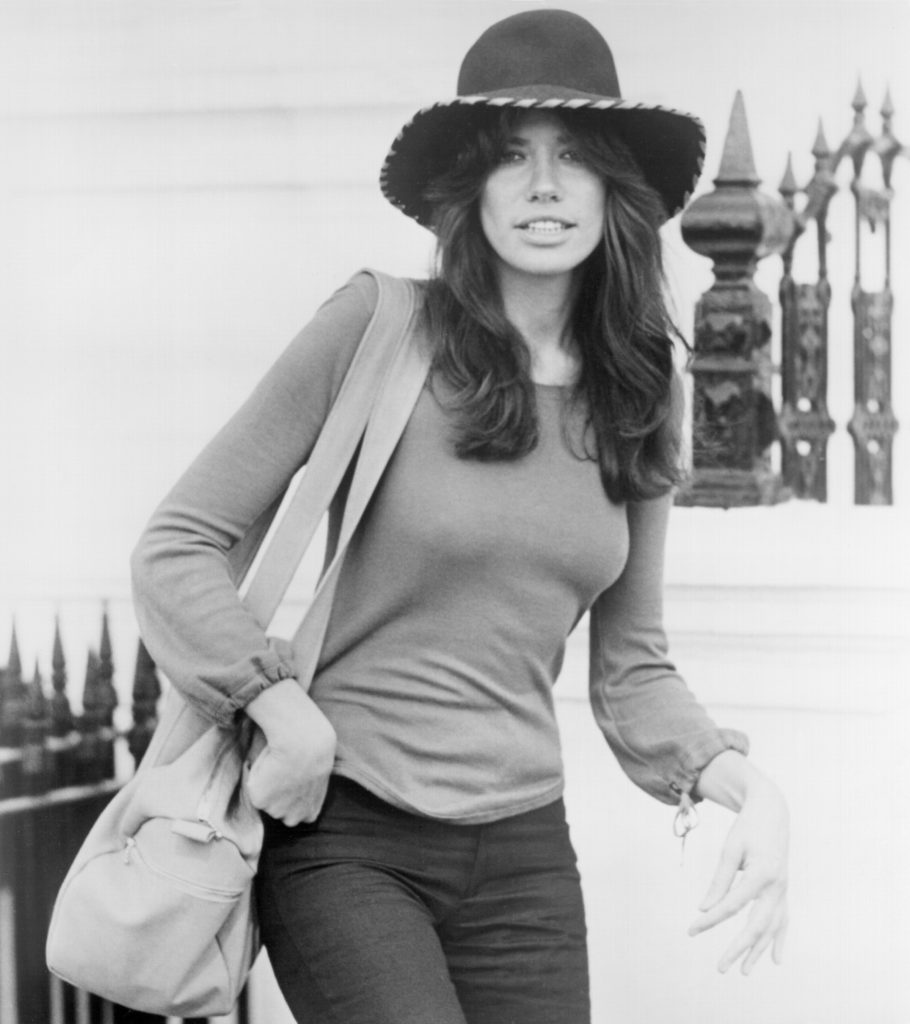
In the early 1970s, singer-songwriter Carly Simon emerged as a gifted storyteller and lyricist who broke established narratives, writing exquisite songs about modern women’s lives. Her confessional balladry, gorgeous melodies, and catchy choruses made her a captivating voice among a new generation of singer-songwriters.
Born into an affluent New York City family, Simon had met such icons as Albert Einstein and Eleanor Roosevelt by the time she attended college. Inspired by Odetta, she first began performing folk music with her sister, Lucy, as the Simon Sisters. Her unique viewpoint as a songwriter became evident in Simon’s 1971 self-titled solo debut. It yielded the Top Ten single “That’s the Way I’ve Always Heard It Should Be,” and she won the Best New Artist Grammy. Her sophomore album, Anticipation, garnered even more success and attention. With nuanced and sophisticated songcraft like “Anticipation,” Simon explored love, breakups, and family relationships; her alto vocals and crystal-clear enunciation gave her songs a buoyancy, even when their subject matter was heartbreak.
Her third album, the masterful No Secrets, included the Number One smash “You’re So Vain,” a pop juggernaut that connected with audiences worldwide and became her signature song. Following Simon’s 1972 marriage to James Taylor, the couple recorded the playful duet “Mockingbird,” a Number Five hit in 1974. Three years later, Simon sang “Nobody Does It Better” for the James Bond film The Spy Who Loved Me. As one of the franchise’s most enduring theme songs, it sparked the admiration of Radiohead, who later covered it in live performances. Simon’s “Let the River Run,” written for the film Working Girl, resulted in Simon becoming the first performer to win an Academy Award, a Golden Globe, and a Grammy for a song composed and performed entirely by a single artist.
Simon’s influence on fellow artists is incalculable – among them, Taylor Swift, who invited her onstage in 2013 to perform a duet of “You’re So Vain” and considers Simon one of her “absolute heroes.”
Selected discography: “That’s the Way I’ve Always Heard It Should Be,” Carly Simon (1971) • “Anticipation,” Anticipation (1971) • “You’re So Vain,” “The Right Thing to Do,” “We Have No Secrets,” No Secrets (1972) • “Mockingbird,” Hotcakes (1974) • “Waterfall,” Playing Possum (1975) • “Nobody Does It Better,” The Spy Who Loved Me soundtrack (1977) • “You Belong to Me,” Boys in the Trees (1978) • “Let the River Run,” Working Girl soundtrack (1989)
Nominee: Carly Simon

A TRIBE CALLED QUEST
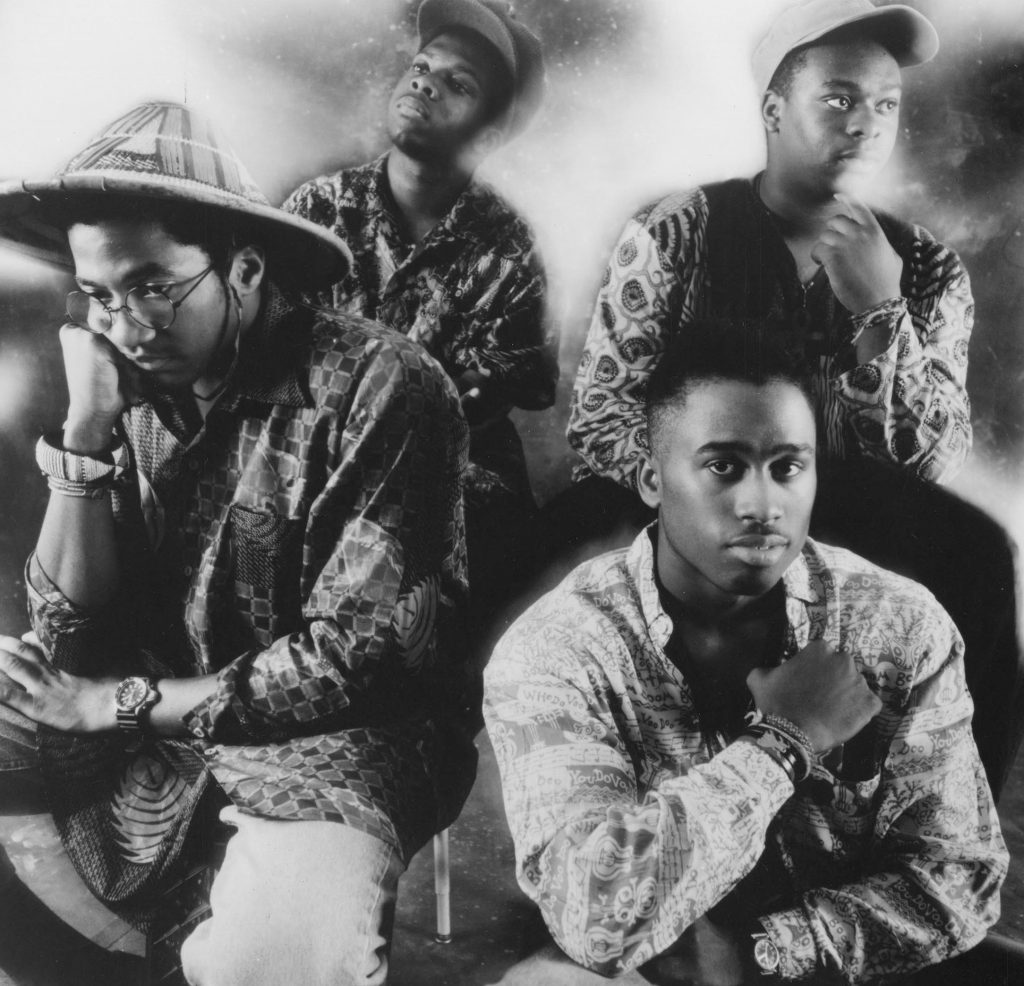
A Tribe Called Quest will always evoke more than just a sound. They shifted the hip-hop landscape forever and expanded the creative possibilities for the genre. Their freedom of expression, ingenuity, and minimalist brilliance continues to inspire generations of hip-hop artists and fans.
One of the most artistic, eclectic, and perceptive rap groups of the 1990s, A Tribe Called Quest nurtured a new alternative hip-hop sub-genre with a caste-free cross-pollination of hip-hop, jazz, and alternative rock. The pioneering group abandoned the aggressive machismo of the era, delving deeply into the jazz-rap revolution. Eschewing the hard-hitting sounds of James Brown prevalent among many of their hip-hop contemporaries, A Tribe Called Quest instead based their music around more laid-back samples, confronting social issues in the African-American community with abstract philosophy. Their cerebral approach became a metaphor for their ideological conviction that the intermingling of cultures and sound can yield to beauty and understanding.
Forming in 1988 straight out of high school in Queens, New York, A Tribe Called Quest featured Q-Tip serving as the producer-leader, Phife Dawg as the emcee, Jarobi White as the spirited everyman, and Ali Shaheed Muhammad as the DJ and co-producer. Within four years, they released three albums, now recognized as among the best of all time: People’s Instinctive Travels and the Paths of Rhythm, The Low End Theory, and Midnight Marauders. “It was listening to N.W.A.’s Straight Outta Compton that inspired us to make The Low End Theory,” said Q-Tip. “Years later, I spoke to Dr. Dre, and he told me that hearing The Low End Theory inspired him to make The Chronic.”
The group became the nucleus of a New York collective known as the Native Tongues, a musical movement deeply rooted in Afrocentric ideals. They created underground waves that continue to ripple throughout hip-hop, influencing artists from the 1990s to the present. Pharrell Williams has said: “We’re all his sons. Myself, J Dilla, Kanye – we wouldn’t be here if it wasn’t for Tribe albums.”
Selected discography:
“Can I Kick It?,” “Bonita Applebum,” “I Left My Wallet in El Segundo,”People’s Instinctive Travels and the Paths of Rhythm (1990) • “Check the Rhime,” “Jazz (We’ve Got),” “Scenario,” “Buggin’ Out,” The Low End Theory (1991) • “Electric Relaxation,” “Award Tour,” Midnight Marauders (1993) • “Find a Way,” The Love Movement (1998)
Nominees: Ali Shaheed Muhammad, Phife Dawg, Q-Tip, Jarobi White

DIONNE WARWICK
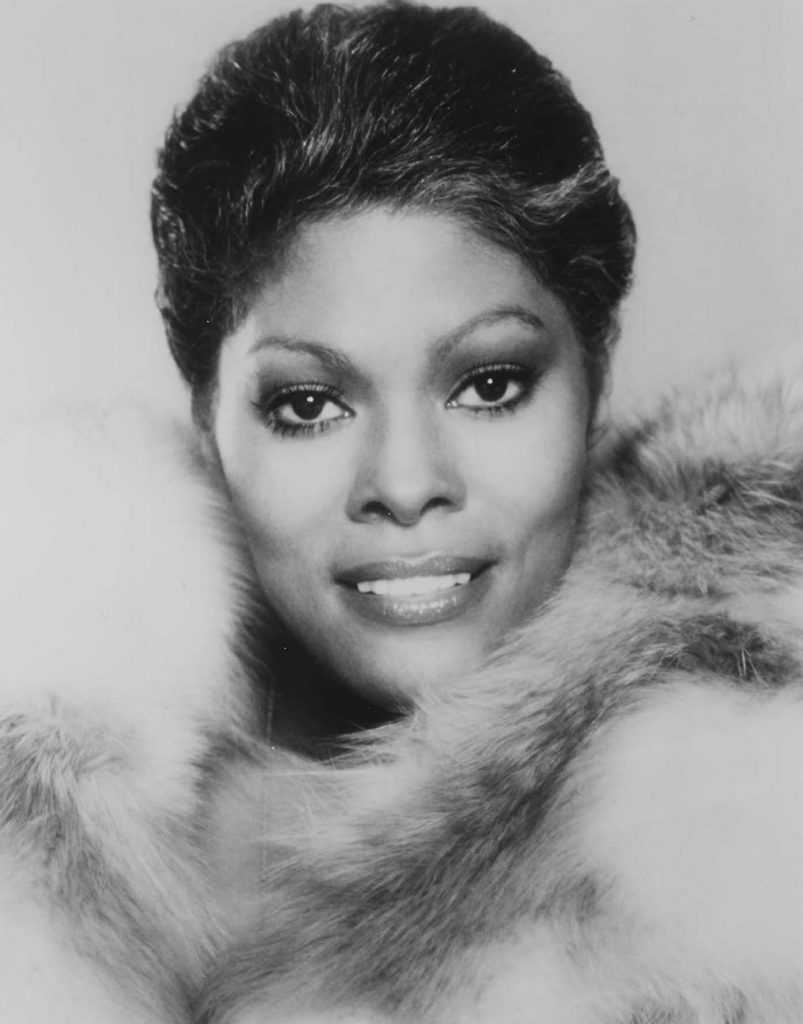
Dionne Warwick is one of the towering figures of popular music. Raised in a family of gospel singers, she received extensive formal vocal training as a young girl. A trip for her 16th birthday to see Lena Horne perform at the Waldorf Astoria would prove to be a career-defining moment. Reflecting on this experience in 1996, Warwick recalled, “It was probably the greatest influence on me.” Soon after her debut in 1962, Warwick made an indelible impact by joining forces with iconic songwriting team Burt Bachrach and Hal David. Warwick’s vocal stylings exquisitely complemented the songwriters’ unique and idiosyncratic compositions, her voice as sophisticated as their staccato arrangements and time changes. Her vocal delivery was a defining sound of 1960s cool, with an effortless delivery and soulful tone. Songs like “Walk On By” and “I Say a Little Prayer for You” transported the listener to a different place.
After Bachrach and David’s split in 1973, Warwick saw continued success with other collaborations. In 1974, she teamed up with the Spinners on the number one smash hit “Then Came You,” a song that perfectly encapsulated the sound of disco in the mid-1970s. 1979 saw another huge hit with the Barry Manilow-produced “I’ll Never Love This Way Again,” earning Warwick her third Best Female Pop Performance Grammy. In the 1980s and 1990s, she sang duets with Whitney Houston, Luther Vandross, and Johnny Mathis, among others; the biggest of these – the 1987 number one hit “That’s What Friends Are For” – featured Elton John, Stevie Wonder, and Gladys Knight.
More accolades and Grammys followed – six in total, including a Lifetime Achievement Award in 2019. Warwick continues to tour and recently became a Twitter sensation with her playful tweets directed at artists with “the” in their names. Witty exchanges with Chance the Rapper spawned an upcoming collaboration between the two and the Weeknd. Dionne Warwick’s innovation in song interpretation, combined with a seemingly flawless ability to stay relevant, have made her a mainstay in popular music history.
Selected discography:
“Don’t Make Me Over,” Presenting Dionne Warwick (1963) • “Walk On By,” Make Way for Dionne Warwick (1964) • The Sensitive Sound of Dionne Warwick (1965) • “I Say a Little Prayer,” The Windows of the World (1967) • “Message to Michael,” Dionne Warwick in Paris (1966) • I’ll Never Fall in Love Again (1969) • “Then Came You” (1974) • “I’ll Never Love This Way Again,” Dionne (1979) • “That’s What Friends Are For,” Friends (1985)
Nominee: Dionne Warwick

About the Rock & Roll Hall of Fame
Rock Connects Us. Our mission is clear: To engage, teach and inspire through the power of rock & roll. We share stories of the people, events, and songs that shape our world through digital content, innovative exhibits, live music, and engaging programs. At the Rock Hall, we are dedicated to making a difference. We intentionally foster a diverse and equitable Museum that encourages and embraces creativity and innovation. As a community leader, we value, empower, and respect all people. Diversity, Equity, & Inclusion is more than just a policy. It supports our mission and defines our future. Join the millions who love it as much as you do. Experience us live or online – Visit rockhall.com or follow the Rock Hall on Facebook (@rockandrollhalloffame), Twitter (@rockhall), Instagram (@rockhall), and YouTube (youtube.com/rockhall). Long Live Rock!
You may like
-
DEVILLE RECORDS’ RHYS RUTHERFORD RELEASES “SOUTHERN BELLE”
-
REESE BROTHERS MULE COMPANY OF GALLATIN HAS SOLD TENS OF THOUSANDS OF MULES SINCE 1920
-
IAN MUNSICK AND MONTANA SILVERSMITHS LAUNCH EXCLUSIVE JEWELRY COLLECTION AT BOOT BARN
-
TWO-TIME PBR WORLD CHAMPION J.B. MAUNEY HEADLINES 2025 CLASS OF HEROES & LEGENDS INDUCTEES TO BE HONORED JULY 10 AT NATIONAL COWBOY & WESTERN HERITAGE MUSEUM IN OKLAHOMA CITY
-
ERIC CHURCH AND CHIEF CARES BREAK GROUND ON FIRST MID-TO LONG-TERM HOUSING COMMUNITY IN AVERY COUNTY, N.C.
-
ABSOLUTELY GOSPEL MUSIC ANNOUNCES FINAL PERFORMER LINEUP FOR THE 2025 AGM AWARDS SHOW


